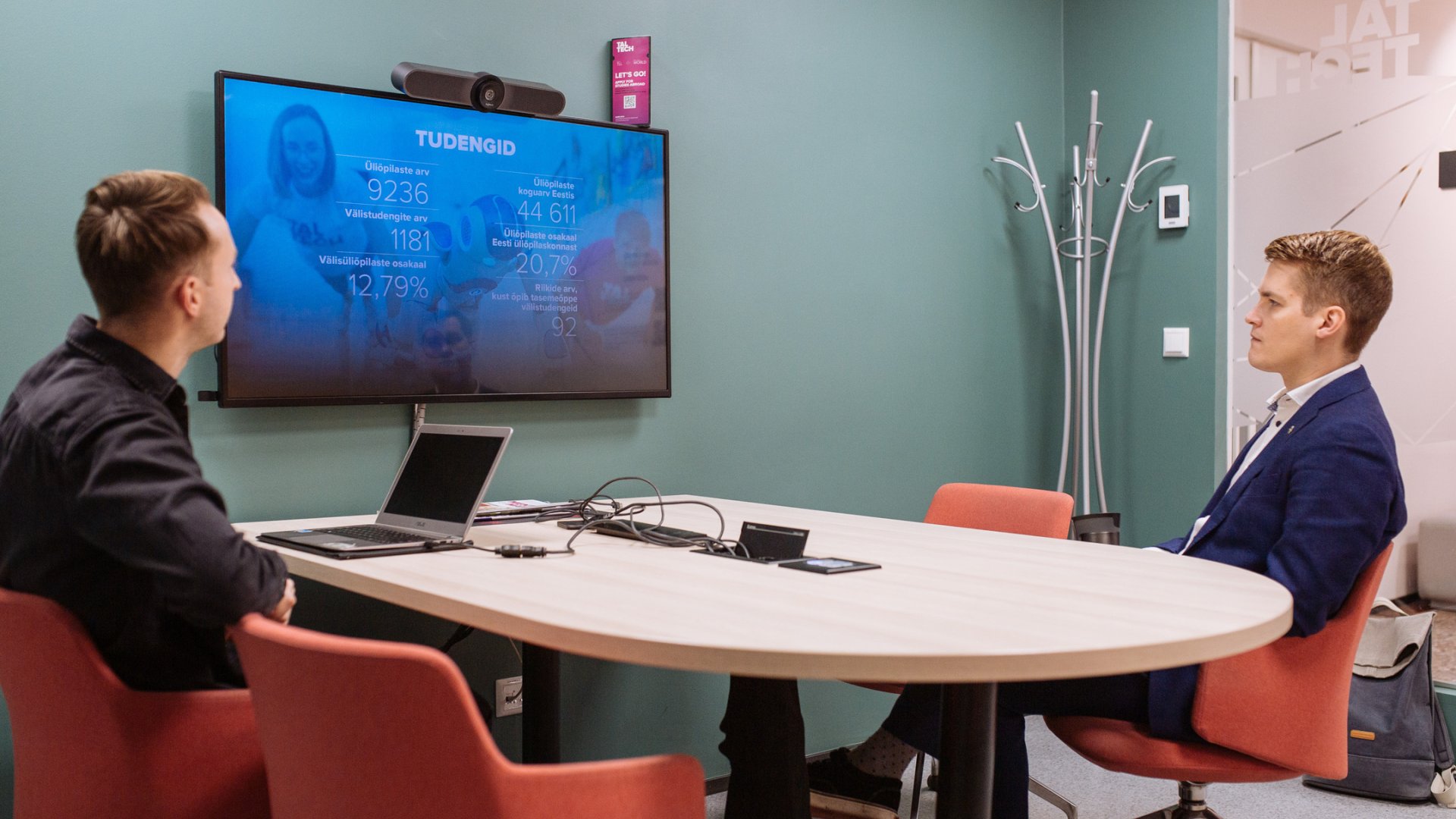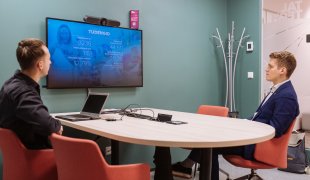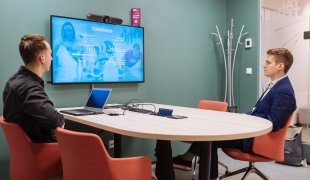Politicians to the university!
The “Politicians to the university!” project had Estonian institutions of higher education invite politicians to become student shadows for a day.
On the first week of November, 31 October – 4 November, spearheaded by the University of Tartu Student Union, the student unions of six Estonian institutions of higher education organized a student shadow day for Estonian politicians. With the project, we wanted to introduce the students’ daily life and challenges to the parliament members.
The aim of this initiative was to offer an effective and constructive intersection point for successful politicians and active, studious students. We created an opportunity for politicians to see what kinds of decisions and choices students must make and what challenges they face in their daily lives. With this project, the students took one of their ordinary fall days and made it into a special and unforgettable experience, where they showed a known politician their doings, rights and obligations and joys and worries. One of the reasons for creating this project was to inform MPs, as the people who have the right to vote on the decisions at the state level, in the most direct way of one of the main problems of students as a societal group – economic vulnerability.
The participants of the project are the students and student unions of Tallinn University, Tallinn University of Technology, University of Tartu, Estonian University of Life Sciences, Estonian Academy of Music and Theatre, and Estonian Academy of Arts.
Gallery
Social media and more
While participating in the student shadow day, the student and their shadow MP had the opportunity to show their activities and extraordinary day on social media by using the hashtag #PoliitikudÜlikooli. Still, either party didn’t need to record moments of the day, but it was a nice way to give the project visibility in the media and raise awareness of the project among the broader audience. Multiple politicians did that by uploading their posts regarding the student shadow day to their social media. The student unions collected photo and video material of the politicians’ and students’ meetings and interviewed both sides.
Some of the politicians’ posts:
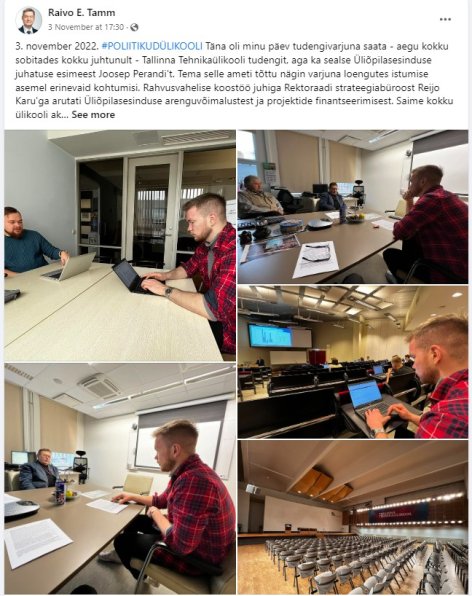
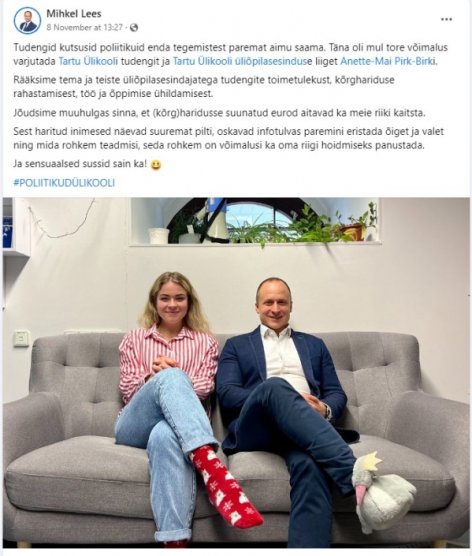
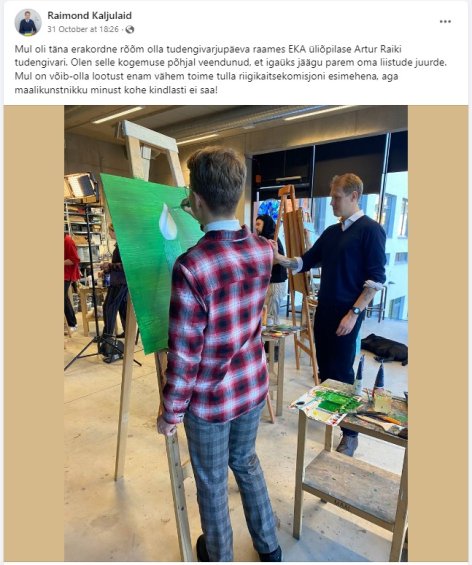
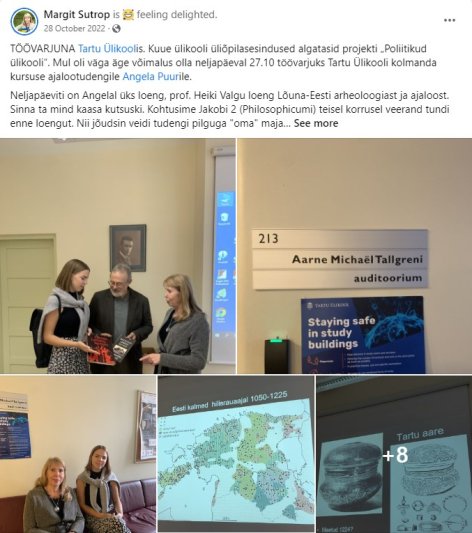
In addition, the television students of the Baltic Film, Media and Arts School (BFM) compiled a newsreel to give an overview of the project:
Students’ thoughts regarding their economic survival and the study allowance system:
“As a medical student, working during my studies seems quite complicated since we study a lot. This is why I think the need-based study allowance should be at least 300 euros per month.”
“I’ve received a study allowance at one point, but there’s no way for a student to manage with the sum of 75 euros. I work during my studies, but I think that other students and I should actually be able to focus only on our studies during our university time. Working is bound to reduce the amount of attention left for studying, and if the job is not related to their studies, it won’t give them anything after they’ve graduated.”
What kind of impression of the students’ situation did the politicians get?
“From talks with the students, it appears that having a half-time job in the service industry is an unavoidable part of their university studies. More important than the student supports is increasing wages – a family should be able to finance their child’s studies itself.”
“Even with the maximum study allowance and receiving the achievement stipend, a student can’t pay for their cost of living, food and other expenses. Working is useful for the students, but this shouldn’t be a reason for discontinuing their studies.”
“It’s clear that the students’ support system needs updating. It’s important that every capable youth could obtain higher education, despite the size of their family’s wallet.”
“The main point was the lack of finances. Both in regards to financing institutions of higher education, but also on the student level – that 68% of students must work in addition to going to lectures to be able to live.”



